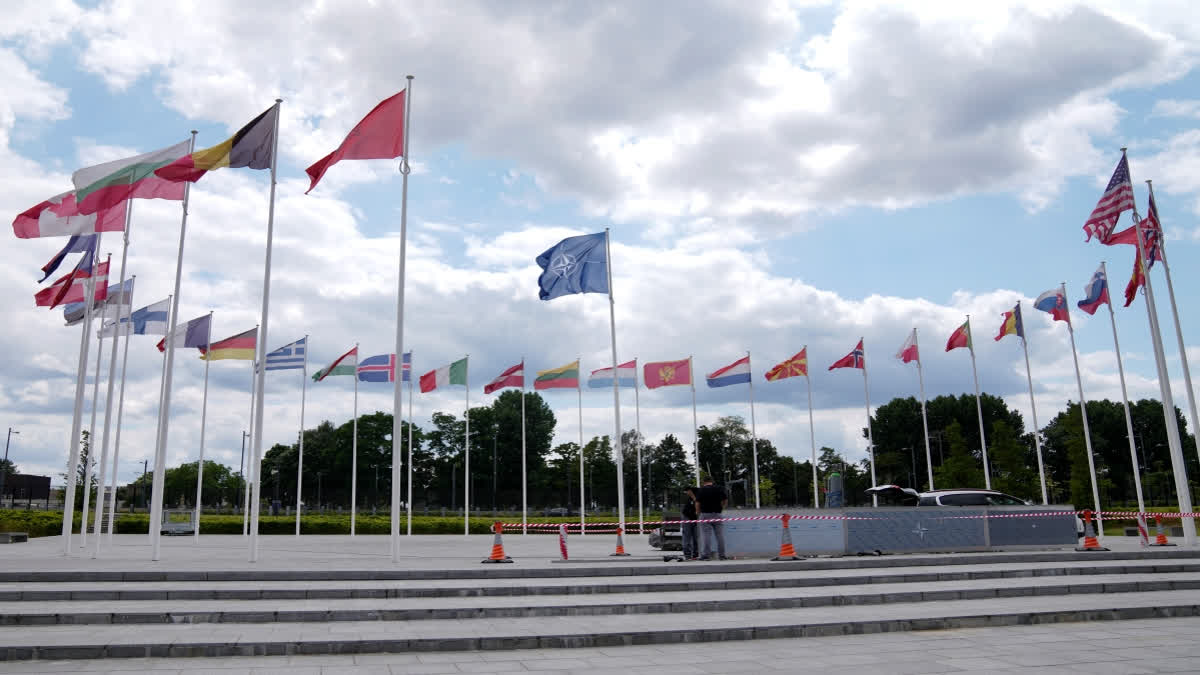Washington: As the Russian invasion of Ukraine continues with no end in sight, NATO's much-celebrated unity faces fresh strains when leaders gather for their annual summit this week in Vilnius, Lithuania.
The world’s biggest security alliance is struggling to reach an agreement on admitting Sweden as its 32nd member. Military spending by member nations lags behind long-standing goals. An inability to compromise over who should serve as NATO’s next leader forced an extension of the current secretary-general's term for an extra year.
Perhaps the most difficult questions are over how Ukraine should be eased into NATO. Some maintain admitting Ukraine would fulfill a promise made years ago and be a necessary step to deter Russian aggression in Eastern Europe. Others fear it would be seen as a provocation that could spiral into an even wider conflict.
"I don’t think it’s ready for membership in NATO," President Joe Biden told CNN in an interview airing Sunday. He said joining NATO requires countries to “meet all the qualifications, from democratization to a whole range of other issues.” He said the United States should provide long-term security assistance to Ukraine — "the capacity to defend themselves" — as it does with Israel.
Bickering among friends is not uncommon, and the current catalogue of disputes pales in comparison with past fears that Donald Trump would turn his back on the alliance during his presidency. But the current challenges come at a moment when Biden and his counterparts are heavily invested in demonstrating harmony among members.
“Any fissure, any lack of solidarity provides an opportunity for those who would oppose the alliance,” said Douglas Lute, U.S. ambassador to NATO under President Barack Obama. Russian President Vladimir Putin is eager to exploit divisions as he struggles to gain ground in Ukraine and faces political challenges at home, including the aftermath of a brief revolt by the Wagner mercenary group.
“You don’t want to present any openings,” Lute said. “You don’t want to present any gaps or seams.” By some measures, the war in Ukraine has reinvigorated NATO, which was created at the beginning of the Cold War as a bulwark against Moscow. NATO members have poured military hardware into Ukraine to help with its counteroffensive, and Finland ended a history of nonalignment to become NATO’s 31st member.
“I think it’s appropriate to look at all the success,” Senate Republican leader Mitch McConnell of Kentucky told The Associated Press. “So I think the invasion has strengthened NATO — exactly the opposite of what Putin anticipated.” He noted Germany’s shift toward a more robust defense policy as well as increase in military spending in other countries.
The latest test of NATO solidarity came Friday with what Biden said was a "difficult decision” to provide cluster munitions to Ukraine. More than two-thirds of alliance members have banned the weapon because it has a track record for causing many civilian casualties. The U.S., Russia and Ukraine are not among the more than 120 countries that have not signed a convention outlawing the use of the bombs.
As for Ukraine's possible entry into NATO, the alliance said in 2008 that Kyiv eventually would become a member. Since then, little action has been taken toward that goal. Putin occupied parts of Ukraine in 2014 and then tried to capture the capital in 2022 with his invasion. “A gray zone is a green light for Putin,” said Daniel Fried, a former U.S. ambassador to Poland who is now a distinguished fellow at the Atlantic Council.
Ukraine's president, Volodymyr Zelenskyy, called for a unified signal from NATO on Ukraine and for his country to join the alliance. “It would be an important message to say that NATO is not afraid of Russia,” Zelenskyy said through a translator in an ABC interview, when asked whether he would come to Vilnius. “Ukraine should get clear security guarantees while it is not in NATO. And that is a very important point. Only under these conditions our meeting would be meaningful. Otherwise, it’s just another politics.”
The U.S. and Germany insist that the focus should be on supplying weapons and ammunition to Ukraine, rather than taking the more provocative step of extending a formal invitation to join NATO. Countries on NATO's Eastern flank — Estonia, Latvia, Lithuania and Poland — want firmer assurances on future membership.
